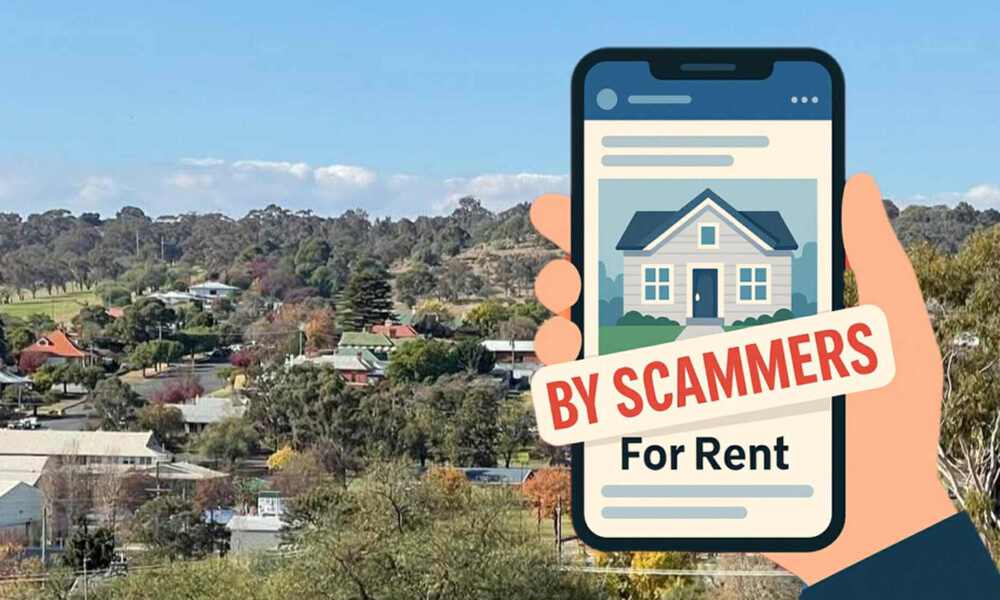Local
Fake ads fool renters: Junee homes ‘hijacked’ in Facebook scam

SCAMMERS preying on desperate renters are targeting homes in Junee with fake rental listings, exploiting Australia’s ongoing housing crisis and leaving both homeowners and hopeful tenants distressed—and in some cases, out of pocket.
The most recent incident occurred this week when a home in Thomas Street was falsely listed as available for rent in several local Facebook groups.
The listing included no price or contact phone number, and instead urged interested parties to private message the poster to apply, creating a closed communication loop that makes the scam harder to detect.
It’s an increasingly common tactic used by fraudsters to lure desperate renters into paying bond or deposit money upfront, without ever seeing the property.
This week’s incident is just the latest in a string of similar listings in the area.
In a separate case from several months ago, an elderly Junee woman—who has asked not to be named or have her address published—was shocked to find strangers turning up at her door believing her home, which she has owned and lived in for most of her adult life, was for rent.
“I was out the front in the garden one morning and noticed the same car driving past slowly, over and over again, and the driver peering into may yard,” she told The Junee Bulletin.
“Eventually the driver stopped and asked if I was the homeowner or a tenant. He told me his daughter saw my house listed for rent on Facebook that morning and she was going to pay a deposit but wanted someone to check the property first.
“That same afternoon, two more people showed up wanting to inspect the place after seeing the listing.”
The bogus advertisement included a photo of the woman’s house taken from Google Street View, along with her real street address.
It falsely claimed the home was a four-bedroom, two-bathroom property, when in reality, it’s a modest three-bedroom house with just one bathroom and toilet.
The ad was removed from Facebook later that day, but the woman said the experience left her unsettled and angry on behalf of those being tricked.
“I was rattled—strangers turning up like that is pretty scary. I didn’t know who these people were or who was coming next,” she said.
“That’s three different people who physically showed up wanting to rent my house. But what worries me most is: if three people physically came here, how many more actually private messaged the scammer and paid money for a house that’s not even available?”
🔺 HOW THE SCAM WORKS
Similar scams are now being reported more frequently in regional areas like Junee, where high rental demand and low vacancy rates have created a perfect storm for exploitation.
Scammers typically:
- Steal images from Google Street View or legitimate property listings.
- Create fake social media accounts to post fake listings using real addresses, without the homeowner’s knowledge.
- Offer unrealistically good deals to attract interest.
- Claim to be unavailable to meet or show the property in person.
- Urge applicants to send deposit or bond upfront to “secure” the rental.
- Disappear as soon as soon as the money is transferred—often via PayID or direct bank transfer.
🔺 SPOT THE RED FLAGS
Hopeful tenants are urged to watch out for warning signs, including:
- Listings with no contact number or prices far below market rates.
- Posts that ask renters to private message only, not call or apply formally.
- Descriptions that sound too good to be true.
- Property details that don’t match public records or real estate listings.
- Requests for bond or rent upfront before inspection.
- Excuses for not being able to meet or show the property in person.
- Vague or generic responses from the so-called owner.
🔺 STAYING SAFE
To avoid falling victim, experts recommend:
- Never pay a deposit or rent before inspecting a property in person.
- Search the address online to verify it exists, or see if it’s already sold, leased or listed elsewhere.
- Crosscheck the listing through local real estate agencies or trusted platforms
- Be suspicious of vague or overly friendly messages with no verifiable contact.
- Use trusted rental platforms or licensed real estate agents where possible.
- Report any suspicious listings to Facebook, Scamwatch, or local police.
With the scam seemingly growing in reach, residents are calling for Facebook to implement stronger controls in buy-swap-sell and community groups—where these scams are often posted—and to provide better reporting tools for users.
If you believe you’ve encountered a fake rental listing or have fallen victim to a scam, report it immediately to Scamwatch at www.scamwatch.gov.au or contact your local police station.














